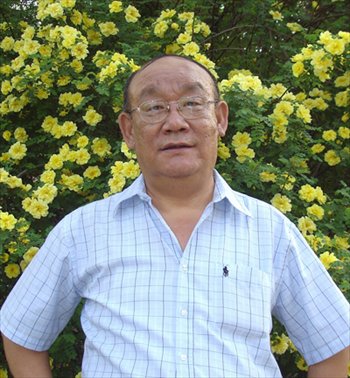Nation's top taboo tackler hopes one day he won’t be needed

Pan Suiming Photo: Courtesy of Pan Suiming
About 30 years ago, Pan Suiming and two male friends secretly watched pornography together. Their mouths fell open when they saw the oral sex scene.
It was the first time these 30-something married Chinese men knew that a mouth had another function besides eating and talking.
"We were so stunned that we couldn't say a word," Pan said. "We didn't know there was something like that in human history, let alone doing it."
Thirty years later, as the head of the Institute for Research on Sexuality and Gender at Renmin University of China, 64-year-old Pan has probably seen it all.
Known as China's "father of sexology," he has devoted himself to the study of sex in China to teach Chinese people how to love.
"Chinese people have been through a revolution in the bedroom in the past three decades," Pan told the Global Times. "From animal-like mating to human-like love-making, Chinese people have finally realized what sex really is."
Lost education
Born in 1950 in Beijing, Pan was one of China's laosanjie generations who initially missed out on university as they came of age during the Cultural Revolution (1966-76).
Between 15 and 35, Pan was a Red Guard, a factory worker and a peasant. In 1981, he got into Northeast Normal University to study history.
His interest in sex studies was triggered by a book about prehistoric sex that he stumbled across in the school library.
It was an eye-opening experience, he said, as it boldly depicted how mothers in some tribes becalmed teenage children by sucking on their genitals.
His life changed in 1984 when he worked as a lecturer at Renmin University of China in Beijing. A year later his first sociology of sexuality class was a big hit at the campus and made newspaper headlines.
The public's reactions were not all positive. Some female students called him "shameless." Others asked him to suspend the class.
The reaction was predictable, Pan said. According to his research, half of couples born between 1936 and 1950 had never kissed.
The pre-1978 China was a "sexless society," as he defines it. That was probably because it was 1979 when Chinese readers first saw a kissing photo published in Popular Cinema magazine.
In the next two months, more than 11,000 letters from all over the country hit the magazine's office, one-third condemning the photo.
Back then, maybe Chinese people couldn't even get Pan's favorite dirty joke: An old man who has newly married a young wife goes to have a body check.
The doctor says, "Let's also check your sex organ."
The old man opens his mouth and sticks out his tongue.
Over the years, most of Pan's students have overcome the sex taboo. But many still find it difficult to talk openly about it.
Usually at the beginning of a new semester, Pan will repeatedly say all the names of sex organs and sexual behavior out loud to his students.
Then at the end of the semester, even a shy girl can bravely discuss sex with her classmates.
"My ultimate goal is have no students at my class," he said. "That means they know everything and that they are not curious about it anymore."
Since 1979 the Chinese view on sex has undergone dramatic changes. In the 1990s, sex education was launched in middle schools and gay sex was no longer classified as a crime.
In 2003, same-sex marriage was submitted to the country's legislature body and rejected.
Chinese couples have made a big step forward exploring their sex life in the last decade.
In 2000, Chinese couples had only 6.6 sex positions on average. The number increased to 7.5 in 2010.
From 1986 to 1989, he used to go to a park at dawn to watch couples' intimate behavior. In 1988, he published his first sex-related book Secret Fire - Social History of Sex. He has also done consulting work as people think he understands sex better than anyone.
"I told people many sexual problems are between the ears, not between the legs," he laughed.
Research troubles
Pan's studies focus on China's sex industry and Chinese people's sex life. From 1998 to 2010, Pan and his team researched 23 red light districts all over the country, interviewing more than 1,100 sex workers, 240 managers and 210 johns.
Like pioneering sexologist William Masters who hid in a closet to observe prostitutes and their customers, Pan said he had done a lot of watching too.
Sometimes watching got him into trouble and earned him unwanted attention. One time the manager of a club became suspicious of him for sitting at a club for hours with one cheap drink.
Another time he almost got beaten up by security guards watching how sex workers did their business at a hair salon in Guangdong Province.
That's not the scary part.
"The scariest thing is when a sex worker tells you she is in love with you," Pan said. "You can do nothing but break her heart."
His book about China's sex industry that reveals the deep connection among sex workers, pimps, johns and people who live off them was a great success. But Pan said he has lost interest.
"The reason why we wanted to study them was because we thought they were different, but the more we studied, the more we found they are just like us," Pan said.
Pan's daughter was a great help during his studies. He found people were more open talking to his daughter than to him. When it comes to his daughter's own sex education, Pan said he has nothing much to talk about.
"I have all those books at home," he said. "She can read any time she wants."